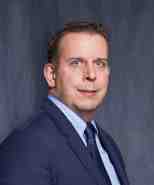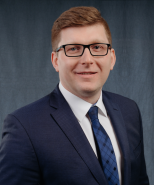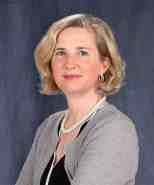The global offshore wind energy industry is growing, with more countries entering the market, many projects advancing in the pipeline, and more offshore wind capacity being deployed in total.
Offshore wind resources are by their nature both huge in scale and highly dispersed, considering how much of the planet’s surface area is covered by oceans and seas compared to land mass. Wind speeds offshore are considerably higher than at the equivalent locations onshore, due to the absence of land mass obstacles and the lower surface roughness of water compared to terrestrial features such as forests and savannah.
List of countries by cumulative installed offshore wind power capacity (MW)
Source: WFO Global Offshore Wind Report
China’s rapid rise through the ranks has shifted the distribution of global offshore wind deployments between the European and Asian markets. Europe still has most of the cumulative installed offshore wind capacity, representing 55.1% of the global total. However, Asia’s market share has sharply increased to 44.8%. The US has traditionally lagged behind Europe when it comes to offshore wind power, but that may be changing. Joe Biden has pledged to build more than 30GW of offshore wind by 2030.
Sweden and Finland are the only countries with a declining installed capacity, due to long permit processes, but in May this year the Swedish government took measures to make it easier to build offshore wind power in the Swedish economic zone by simplifying the application process, and approved two new windfarms on the Swedish west coast.
This year is set to be one of the busiest for offshore wind developers and governments around the world as a multitude of new sites are scheduled to receive offshore wind farm construction. By 2050, installed offshore wind power capacity is expected to reach 1550 GW worldwide, an 80-fold increase compared to the capacity of 2017.
With a well-established offshore wind industry, recognised as one of the oldest in the world, and a mass of experienced talent, European offshore wind is attractive to investors for its political stability, the presence of a full and stable supply chain and clear support via various legal and regulatory frameworks. The offshore landscape in the Asia-Pacific region is more experienced than that in the US, but faces a lack of local expertise which is exacerbated by ongoing regulatory changes. In the US, installed offshore capacity is an immature sector; while there is a strong interest in installing it, the US must overcome challenges in infrastructure and a long lead time for approvals. The US is also facing supply chain issues as it works to achieve its target of 30GW of offshore capacity by 2030.
Floating offshore wind enters the commercialisation phase
The technical exploitable resource potential for offshore wind is a factor of the average wind speed and water depth, as it is only possible to generate electricity from offshore wind resources where turbines can be anchored. Currently, fixed foundation offshore wind turbines can be installed up to around 50 metres (160 ft) of sea depth. Beyond that, floating foundation turbines are required, potentially allowing installation at depths of up to one kilometre (3,300 ft) based on currently proposed technologies.
Floating wind is gaining momentum globally, with large scale deployment taking place in various countries and regions. Floating foundations make wind power accessible in deeper waters where the potential is unlimited, and turbines will be unnoticeable.
Floating wind is advancing at a rapid pace; the demo projects have worked, and now is the time to scale up to large projects. The global pipeline for floating offshore wind energy more than doubled in 2021, from 26,529 MW to 60,746 MW. This growth is attributed to several new projects in South Korea, the United Kingdom, Brazil, and Australia entering the pipeline and beginning their planning phase.
Three floating offshore wind energy projects came online in 2021, totalling 57.1 MW of new capacity. The largest floating offshore wind project built to date (50 MW total—2 MW of which moved from Portugal in 2021), Kincardine Offshore Wind Farm, came online in Scotland (Principle Power, Inc. 2021). A 5.5-MW floating offshore wind energy demonstration project came online in China, which was developed by China Three Gorges Group (Russell 2021). Additionally, the 3.6-MW TetraSpar Demonstration Project was installed in Norway at a water depth of two hundred meters (Stiesdal A/S 2021). These additions brought the total global floating offshore wind energy capacity up to 123.4 MW.
The floating offshore wind industry has been attracting increasing commercial interest over the past few years. Since 2019, the project pipeline has expanded fourfold, mostly because of new projects entering the planning phase. Several companies are developing innovative floating offshore wind platforms for use in deep waters, including spar-buoy, tension-leg platforms, semi-submersible, and barge.
A 2022 analysis by Norwegian Offshore Wind showed that there are more than 100 different floater technologies under development globally, with Norway developing the most, followed by the US and Spain.
Hexicon – first mover in a rapidly expanding market
One of the early project developers in the floating wind field is the Swedish company Hexicon. As a project developer, Hexicon leads the process for the first 2-8 years of a project. During this period Hexicon builds partnerships with local stakeholders and seeks permits to deploy the construction of floating wind farms. Hexicon is involved up until the final investment decision (FID), with its ownership in projects being divested at a premium well before completion and even construction.
TwinWind™ – an advancement of the technology roadmap
The TwinWind™ technology is presented by Hexicon as a game changer in the field of wind energy, as it allows two turbines to be installed on a single foundation.
This approach offers cost savings and reduces the impact on the environment and surrounding activities. To date, the development of TwinWind™ has progressed through numerical analyses and physical testing using downscaled models. The final step in this verification process, a full-scale offshore installation, will be achieved through the TwinHub project in England, which is being pushed forward towards a final investment decision (FID) by the end of 2023. In addition to the TwinHub project, Hexicon are committed to strengthening their IP portfolio.
The TwinWind™ design is compatible with all major offshore wind turbine designs and can support turbines ranging from 3MW to 15+MW and beyond, evolving as turbine technologies evolve.
Projects and prospects – the path to growth
During the second half of 2022, Hexicon invested heavily into their project portfolio, and have now transitioned over to the second stage of their business plan. This stage includes partial divestments of selected projects and recycling capital, and they have secured a convertible loan of 82.5 MSEK in November to support it. Significant milestones have been achieved in Hexicon’s project portfolio, paving the way for successful sales of the more mature assets, and positioning Hexicon for further growth.
Europe is expected to have the largest floating wind installation by 2030
Hexicon’s operations in Italy have progressed at a rapid pace, with AvenHexicon obtaining priority rights for two large water areas totalling 2,550 MW and securing grid connections for 7,100 MW, meaning tripled capacity in the Italian portfolio. This of course strengthens Hexicon’s position in the rapidly-expanding European market.
South Korea is taking the lead in Asia
One of Hexicon’s key projects is the MunmuBaram project in South Korea. During the project period, Hexicon entered into a preferred turbine supplier agreement with Vestas, which includes the supply and installation of eighty-four units of the V236-15.0 MW turbine. This state-of-the-art machine from Vestas holds 115-meter blades and a swept rotor area equivalent to six soccer fields and represents the first-ever large scale floating offshore wind project for Vestas.
About the Author:

Jonas Bengtsson is a Principal for the Nordic region at Pedersen & Partners. With over a decade of international experience in Executive Search, management consulting, and strategic corporate advisory, Mr. Bengtsson has successfully completed cross-border mandates in the Industrial, Public, NGO, Engineering, Energy, FMCG, and Franchising sectors. In addition to his business track record, Mr. Bengtsson has been a university lecturer in Strategy and Corporate Development and Swedish Labour Law. Prior to joining Pedersen & Partners, Mr. Bengtsson was a Partner at a European Executive Search and Consulting firm, with a specific focus on top leadership public sector mandates and engineering roles for private, public, and family-owned organisations. Before that, he served as a Senior Management Consultant with a global search firm, acting as a key member of the strategy, assessment, on-boarding, and succession planning committees. In addition to his consulting work, Mr. Bengtsson has advised political organisations and NGOs on strategic communication and public relations.
Mr. Bengtsson holds a Bachelor’s degree in Political Science and Economy from the University of Karlstad, with additional courses on Competitive Intelligence focused on Strategy and Corporate Development. In addition to his native Swedish, Mr. Bengtsson speaks English fluently.




















 I am excited to join the firm and I look forward to providing strategic leadership advice and detailed talent market analysis to global, regional, and local clients who value the robust service we are offering. Pedersen & Partners is continuing its growth momentum and I trust that my combination of business operations and executive recruitment expertise will help expand the Pedersen & Partners brand into an even greater array of markets,” added Michael Larsen, Client Partner at Pedersen & Partners.
I am excited to join the firm and I look forward to providing strategic leadership advice and detailed talent market analysis to global, regional, and local clients who value the robust service we are offering. Pedersen & Partners is continuing its growth momentum and I trust that my combination of business operations and executive recruitment expertise will help expand the Pedersen & Partners brand into an even greater array of markets,” added Michael Larsen, Client Partner at Pedersen & Partners.